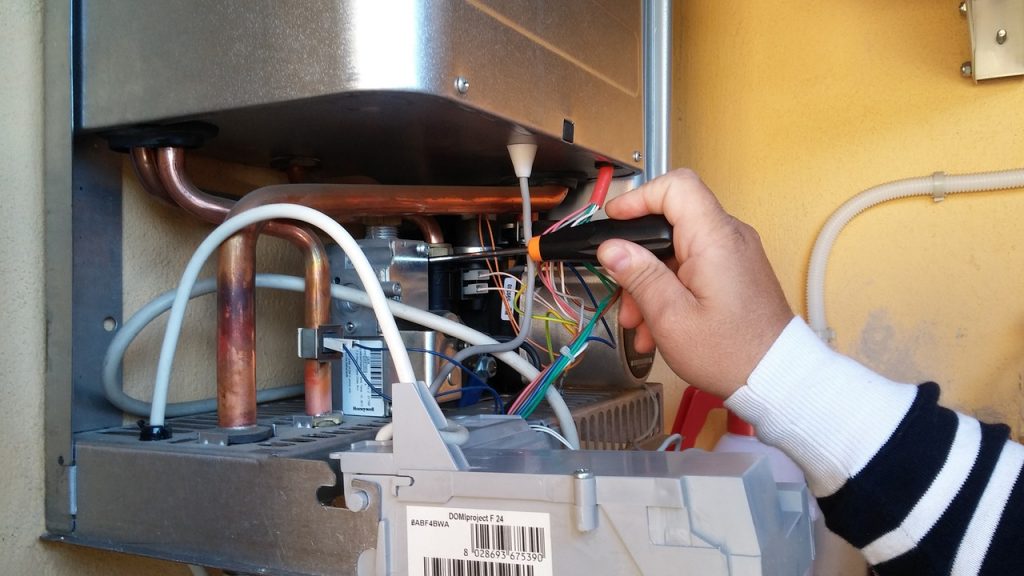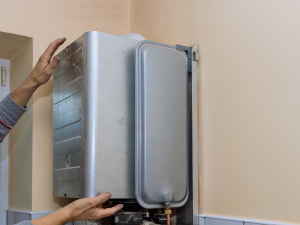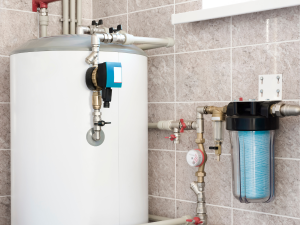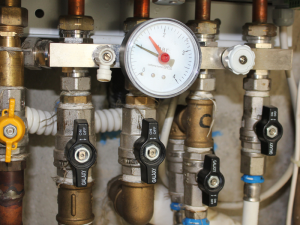They say you’ll never know the value of something until you lose it. True to that, you never know how much you need your boiler in your home until it fails. You have to bear the cold water on top of the unbearable cold weather conditions, especially in winter. The bad thing is boiler problems can happen to anyone, no matter what type of boiler you use and how long it has served you.
But the good thing is that most of the problems can be prevented by regular maintenance. Other times, all it needs to get the water boiler functioning properly is simple troubleshooting and repair, while in other extreme cases replacement may be necessary.
Let’s look at the most common boiler problems you can expect and how to prevent or fix them.
Problem 1: Boiler leaks
Leaks may seem insignificant until they’re the major cause of your boiler failure. If you notice dripping water or pools of water around the radiator, it may be a sign of a faulty relief valve, a corroded pipe, or a faulty pump. Failure to fix leaks may cause the growth of mold and invite water damage in your home.
Problem 2: Strange noises
Your boiler may produce some noise when operating, especially when starting up. That’s normal. But if suddenly you notice some unusual sounds, it may be the sign of an underlying problem. Such noises can be caused by limescale build-up, which causes overheating of the boiler. While this is happening, there’s the production of steam and bubbling, which causes a whistling noise (known as kettling). Fortunately, it’s easy for a heating engineer to get rid of these chemicals during your annual maintenance.
Problem 3: Frozen condensate pipe
This is a common boiler problem, especially in colder regions and seasons. In most homes, the condensate pipe responsible for transporting condensate (the waste gas) from the boiler to the outside drain is fitted in an unheated location or outside the house. Due to the cold weather, it can freeze causing a blockage. The condensate makes its way back to the boiler, which would cause it to break down.
Thankfully, you can fix this issue by yourself by defrosting the condensate pipe. Just thaw by applying hot water (not boiled) to the pipe. It’s best to insulate the condensate pipe to prevent reoccurrence. Alternatively, if the pipe is installed externally, get a heating expert to relocate it to an internal space where freezing is not likely to occur.
Problem 4: Heating works perfectly, but hot water doesn’t (or vice versa)
Typically, this issue is caused by a fault in the diverter valve—this is the valve that opens or closes hot water to radiators, taps, and showers. The boiler issue is more common in old boilers because of the wear and tear they’ve withstood through the years. Besides, an aged diverter valve is more prone to sticking when turned resulting in the passing of cold or lukewarm water. Replacing the diverter valve can be expensive, so if it’s the culprit, it makes more sense to replace the boiler instead.
Problem 5: Boiler won’t turn on
If your boiler doesn’t turn on, first, check the power. It may seem obvious, but it can be that your boiler is unplugged. If it isn’t the case and all other appliances in your home function properly, then it’s likely that your boiler has a problem with the PCB (circuit board). If broken, the PCB would require repair or replacement. But this doesn’t come cheap; prepare to dig into your pockets for this unfortunate event. This may also be the ultimate evidence that you need a new boiler if yours is aged.
Problem 6: Faulty thermostat
The thermostat may fail to perform as expected due to common events such as incorrect settings (the time and schedule). However, if it begins turning on and off or losing its temperature accuracy, it would need to be replaced. When a boiler stops responding to the thermostatic control, it can cause major disruptions. To begin with, check the setting of the thermostat to ensure it’s not faulty. Perhaps, you’ve set your thermostat so that it doesn’t allow the boiler to heat the home higher than what you’ve set. In that case, increase the temperature setting as desired. If that doesn’t fix it, you may need a new one.
Problem 7: The pilot doesn’t light
The small blue flame responsible for lighting and burning the boiler should always be on anytime the boiler is turned on. If the flame is off, your boiler isn’t functioning efficiently. Typically, this would happen when the thermocouple is faulty, which would disrupt the distribution of gas in the boiler. To ensure its functioning as it should, try reigniting the flame—first, ensure your gas is turned on. If the pilot light doesn’t turn on, it’s time to contact the heating expert for assistance.
Problem 8: Radiator system fails to heat
You may not know it, but the boiler system operates on radiators. So, when they aren’t heating up, your boiler will not function efficiently. Radiators may fail to heat when there’s a buildup of sludge in the system. To fix this, try adjusting the valves or bleeding the radiators. It should be that simple; however, if you’re not comfortable doing it yourself, don’t hesitate to get the help you need.
Problem 9: Lower than average boiler pressure
Boiler issues such as water leaks, bleeding radiators, and broken valves can cause your boiler’s pressure to go below the optimal level. Typically, a boiler will operate at a pressure of 1.5 bar. Below 1 bar, the boiler will not function properly and would be a sign of an issue with the central heating system. To check on the boiler pressure, look at the built-in pressure gauge and reset it.
Boiler issues are a common problem in most households. In fact, you’ll be shocked to know that one in five boilers break down every year. No question, yours can be among them. Being aware of the issues to expect with water boilers beforehand, you can take measures to avoid the issues before they occur. But if you’re currently experiencing any of the above boiler problems, you are more aware of what the issue would be.
Depending on your technical experience and the extent of your problem, you may fix some of these boiler issues yourself. But if it’s something you can’t do or have tried and still having trouble with your boiler, don’t hesitate to contact a home or heating expert to fix your boiler. Keep in mind that working with boiler systems can be risky and requires professional training. As such, ensure your water boiler is unplugged from your power and water supply before trying any troubleshooting and fixing these problems on your own.








